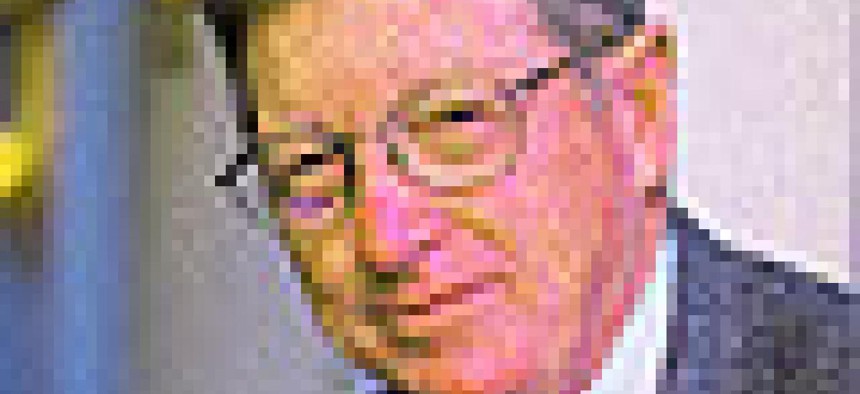White House Frets Over Possible Overseas Restrictions on E-commerce Standards

The Clinton administration is concerned that foreign governments will set standards for e-commerce that could hurt U.S. companies.
By Anne Gallagher, Contributing WriterThe Clinton administration is concerned that foreign governments will set standards for e-commerce that could hurt U.S. companies.The administration, Congress and industry all agree that standards for interoperability are critical to the long-term success of the Internet and e-commerce. But how to define those standards is where the debate gets complicated."The continued growth of e-commerce depends on a fundamental set of technical standards that enables essential technologies to interoperate and on a policy and legal framework that supports the development that the market demands," said Sen. Bill Frist, R-Tenn., chairman of the Senate Commerce Committee's panel on science, technology and space. "A lack of interoperability introduces inefficiency into the e-commerce system, preventing it from realizing its maximum potential."Debate on the problem has centered on just how to establish those standards as they stretch across geographical borders.At present, the U.S. government recognizes the private sector should lead in the development of standards but is having difficulty persuading other governments to take the same approach, particularly those in the European Union, Andrew Pincus, general counsel at the Department of Commerce, told the Senate subcommittee in October."The best results are achieved when the market, not governments, determine how best to achieve the goal of different systems working together on a global basis," Pincus said.Despite agreement on the need for standards, the U.S. government and industry now are concerned that foreign governments may want to take the process too far by setting their own Internet standards that could impede American trade."The U.S. government is determined to prevent other governments from using the standardization process to impose either technical barriers to trade or special-use requirements that would interfere with the unique nature of the Internet as a global enterprise," Pincus said. "As U.S.-developed standards move into the global arena, we are also concerned with assuring that the process for setting international standards, however defined, is fair and open to all interested parties."The role of government should be to promote a technology-neutral legal framework and remove paper-based obstacles that are found in existing laws and which impeded engaging in commerce electronically, Pincus said. But European leaders do not appear to favor the same approach."By contrast, our colleagues in Europe are in the final stages of adopting their Directive on Electronic Signatures," Pincus said. "One of the main concerns that we and U.S. industry have is that the proposal calls for adopting specific technical standards for digital signatures and having those determinations ultimately made entirely by a committee of government representatives."Also, differences exist between the United States and Europe on privacy protection. The European Union wants to put laws in place while the United States prefers self-regulation, Pincus said. Discussions on that issue continue with members of the European Union in order to establish consumer protection of a crossborder nature, he said.In some cases, other governments may select other methods to establish barriers to e-commerce, industry observers told the panel."Some European governments choose to be isolated by insisting on local languages as the communications standard instead of English, which has become the de facto language of the Internet," said Andrew Whinston, director of the Center for Research in Electronic Commerce at the University of Texas at Austin. "In this case, languages, not communications protocols, become the barrier to interoperability."While the e-commerce issue has been brought to the attention of Congress, lawmakers are not expected to taking any related legislative action this year as Congress adjourns for elections. However, interest in the issue is growing in both chambers."We know we've got a lot of work ahead of us" in understanding e-commerce, said Sen. Conrad Burns, R-Mont., chair of the Commerce Committee's panel on communications, adding: "The government hasn't figured out how to tax it or how to regulate it." Meanwhile, the Clinton administration is taking on some added initiatives of its own.For example, Pincus reported that the administration's National Institute of Standards and Technology is working closely with U.S. industry to support market-driven, voluntary e-commerce standards. "Having an agency such as NIST in that role will ensure that industry has a partner that understands the demands of technology and business innovation, is experienced in key infrastructure standards, is independent of political motivations and has adequate resources to help keep the United States in the forefront of e-commerce," Pincus said.NIST also is working with industry to improve interoperability at the interface level in the National Wireless Electronic Systems Testbed project to develop and define technical standards for broadband wireless access technology, he said. And NIST is working with industry to create the new Advanced Encryption Standard."The global cryptographic community has been actively participating in the process managed by the NIST, and the process is on track to meet its goal of having the standard completed by the summer of 2001," Pincus said.


Sen. Conrad Burns
NEXT STORY: Integrator Insider

